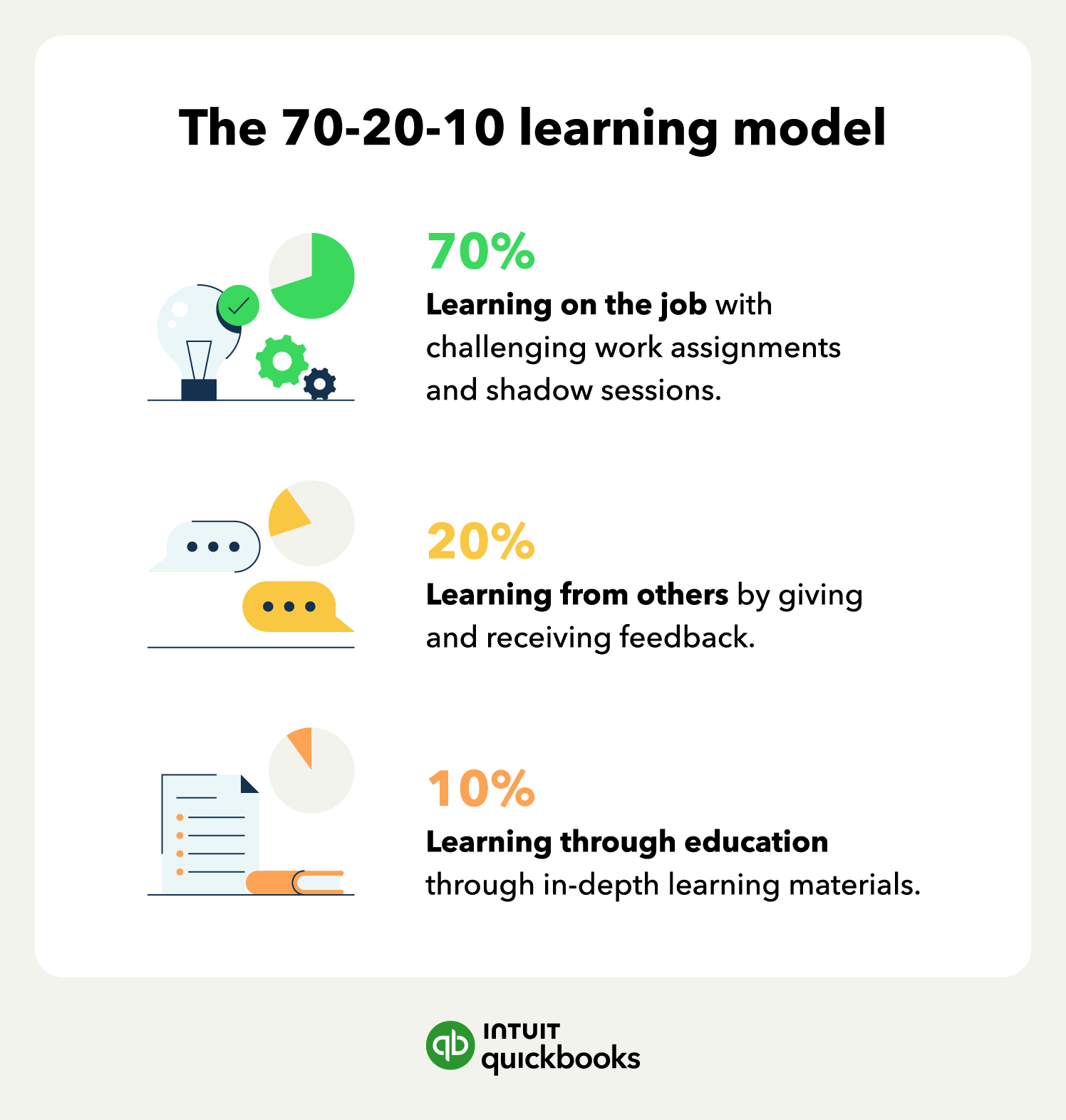The 4 growth levers in the 70-20-10 learning model
The 70-20-10 learning model contains multiple “levers” that we, as leaders, can use to maximize our team’s growth and potential. Here are a few examples of the levers Intuit employs, why they’re helpful, and how they might apply to your firm.
- Stretch assignment: This is a “learning on the job” lever. The goal of a stretch assignment is to develop an employee’s skills and capabilities with a challenging work assignment or project. The company benefits from the completed project, while the employee gains visibility and credibility they may not typically get in their formal role. And who knows? If a position requiring that specific skillset comes available, that employee may prove to be the perfect fit.
For your firm: Consider having an employee take on a challenging client assignment or shadow you during an advisory meeting.
- Feedback and networking: This “learning from others” lever is one we employ on a quarterly basis at Intuit. Employees are asked to solicit feedback from their peers, main stakeholders, and leaders. Those individuals provide both positive reinforcement and constructive criticism. As a result, team members feel more connected to others, gain more visibility, and learn from different perspectives. One of my favorite parts about this lever is that it applies to leaders as well. Not only do we receive feedback from other managers, but we also get assessments from our direct reports. This “full circle” approach to feedback gives the process a sense of fairness and transparency. Best of all, because every person at Intuit goes through it, each of us has the opportunity to grow and be held accountable.
For your firm: Consider having your team get feedback from clients after an assignment, from their peers, and from their leaders for a full 360 assessment.
- Internal development: This is the “learning through education” lever. The goal is to build on our team’s knowledge and skills in reference to their current or future roles. We do this by bringing in an outside teaching authority that can provide in-depth resources and learning materials.
For your firm: Consider having your team get ProAdvisor Certified to gain more confidence and knowledge, as well as additional skill sets that may be needed to best serve clients (it’s free and offers CPE credit).
- External development: Another “learning through education lever,” this course of action takes is the inverse approach. Rather than educating employees with an internally offered program, team members attend offsite conferences, trainings, or readings. The goal is the same, to build employees’ knowledge and skills and help them perform better in their current or future roles.
For your firm: Attend QuickBooks Connect. It’s a great way to network with other accounting professionals and meet the QuickBooks team, all while learning about best practices. There are many professional networks, communities, and events in the accounting profession that are an energizing way for your employees to expand their horizons.
Thrive as a firm with a culture built on learning
There are many ways to successfully break out your firm’s approach to learning and development. From building your team members’ craft skills to providing feedback and networking opportunities, there’s a wide range of options for satisfying that part of employee happiness that’s dependent on continuing to learn and grow.
The most crucial part of your strategy is that it must be sustainable. Whatever your firm’s approach is to career development, goal setting, or continuous learning, it can’t all hinge on one person or one motivator. Your firm must adopt a culture that embraces ongoing education and growth to maintain that pursuit long-term.
Read the rest of our CAS series:





